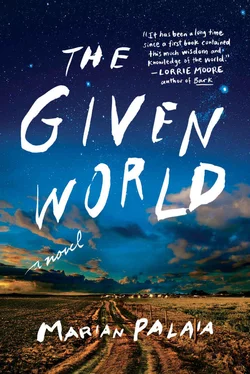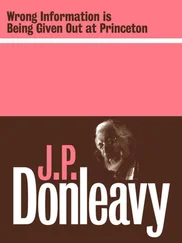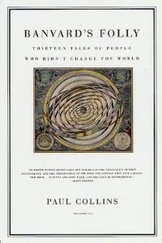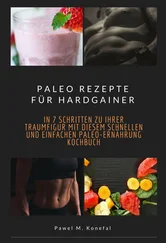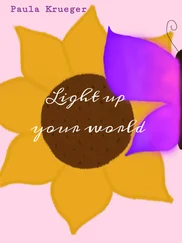He played for tips in the coffee shops a time, put together a band good enough to open for some of the bigger acts, played Kezar Stadium and Monterey and quit, at the tail end of ’69, at Altamont, when a too-high fan named Meredith Hunter got himself stabbed by a Hells Angel — four deep wounds in his back, one in his head — which may or may not have preserved the lives of a couple of young, petulant and exasperated Rolling Stones, threatening to stop the show, just stop it, if those cats didn’t cool their jets. They were wondering what was wrong with America. What had gotten into the kids.
Frank was wondering the same thing. “ ‘Gimme Shelter’ my ass,” he said. He was talking to his drummer, who didn’t really know he was being talked to, because he was so high on angel dust he thought the stabbing was part of the show.
A friend talked Frank into going down to the union hall to get his Teamster card, and by the time he met Riley, he had five years in, enough to be vested at the newspaper and with a permanent swing shift. It was perfect: two days in his own neighborhood, two in the Marina, and one in Daly City, where the fog was so thick it made the Sunset look like Ensenada. He was happy being single, being offstage, no real responsibilities except to get the papers off the truck and collect a few delinquent bills. The paper cost five dollars every four weeks, delivered through the gate. When a one-bedroom opened up in his building, he moved into it. Two hundred forty dollars a month. He got a dog at the shelter, an electric guitar and a Pignose amp at the pawnshop, and never turned the amp up past halfway. He messed around and wrote some love songs, put it all down and got to bed by ten. Went to school during the day and got his BA in literature. Wrote some bad poems. Made the dean’s list twice. Skipped graduation because he couldn’t picture himself in one of those black gowns. He knew he’d look a damn fool.
Spot, a seven-month-old heeler mutt, slept at the foot of the bed, and when Frank tossed and turned, Spot yipped in his sleep, like he was saying “Cut it out.” Frank was grateful for the company. He stuck the framed photos of his ballerina wife away in a drawer when he heard she’d remarried, and one day pulled them out and took them down to the sidewalk. He leaned them against a lamppost and watched from his window as a woman pushing a shopping cart toward Geary stopped to add them to her belongings. She lined them up around the perimeter of the cart, on the inside, so it looked like a beautiful and tragic tutu’d lady was waiting (on her tiptoes) for a white knight to come and throw her bail. He started bringing the dog to work with him, figuring someone would eventually tell him to stop, but no one did.
The kid rolled in from Wyoming, or one of those big empty states that wasn’t Texas. She got tangled up with Primo; tried, from what Frank could tell, to keep him from going under. That didn’t work out so well, but she stuck around after all the party candles went out. She’d been living in Primo’s apartment and managed to hold on to it until his wife moved back in, and afterwards lived in a bunch of different studios, mostly in the Mission, moving every year or so. Restless, Frank guessed. After they got to be friends he helped her move a couple of times, in his newspaper truck. The trucks were handy for stuff like that. Moving in. Moving out.
Riley loved Spot. Brought him bones. Scratched his ears and between his shoulder blades until he made noises that sounded like words. Called him “silly dog” and kissed his cold, wet nose.
Primo had gotten her a couple routes of her own in Eureka Valley, and she worked them for a few years — probably made a couple hundred a month. She’d be done by five thirty and then hang around — all the drivers knew where to find her — to help and get paid extra when other kids didn’t show up. She was good. She could throw a hundred papers in the straight blocks in about six minutes flat. All business. No time to bullshit. It was like she was on a mission; kind of hard telling, though, what it was.
When she turned twenty-one, she finally got herself hired on as a casual, and Frank would see her working on the dock, loading the panel trucks and the bobtails and the semis with bundles of the daily news. She was still serious as hell when she was working, but sometimes after all the trucks were loaded she’d relax a little, hang out with the transportation guys, smoking cigarettes — sometimes a joint — and yakking. The others were a little in awe of her, tough as she was, first girl ever hired to work the docks, to drive. Maybe they expected her to cry once in a while. The job could be a bitch. They all felt like crying sometimes.
Frank was there one early morning when she got a splinter the size of a toothpick under her fingernail, slamming down a bundle at the side of one of the old-plywood-lined bobtails. She shut down the chute for about thirty seconds, came out into the light where she could see what had stabbed her, pulled it out with her teeth, and went back to work. He was loading his own truck right next to her and watched her pull the splinter out. He knew it hurt; it hurt him to see it. She showed it to him later — that chunk of wood, and it was a chunk — which she’d stuck in her pocket, and the streak of red that ran almost to the cuticle. If you looked at it from the tip of her finger, you could see the hole it made. Fuck. Frank would have gone home. Let someone else load that sucker.
He told her what he was thinking. “You should get out of here. Go home and soak that finger in something.”
She looked at him like he’d lost his mind. “Why would I do that?”
“Because you’re hurt?”
“Nah. Nothing’s broken.”
“Nothing has to be broken. They’ll let you go. They have to.”
“I don’t want to,” she said, jaw set, eyebrows raised. He got it. He stuck around and helped her load the next truck, half expecting her to tell him to split, but she didn’t. She favored her hand when she could, and when the light from the dock crossed her face, he could see brief flashes of pain there.
Later some of the drivers gave him a hard time. “Isn’t she a little young for you?”
“I wasn’t hitting on her. I was helping her. Any of you assholes could have done the same.” They grumbled, walking away. Didn’t like being called assholes, but sometimes the truth hurt. And she wasn’t that young. And it’s not like he was so damn old.
Another time she got jumped in the alley coming to work. Gave up her wallet and still got kicked in the head. She was bleeding like crazy — the way head wounds do — when she got to the plant, but just wadded up a handful of newspaper and held it over the cut ’til it stopped bleeding. It wasn’t a really big cut — didn’t need stitches or anything, just a butterfly — but the bruise around it was pretty scary looking. This time a few of the drivers tried to talk her into going to the hospital, but she wouldn’t. She took some aspirin, and after a while started whistling, because most of the money she had on her was in her boot. She wouldn’t even call the cops.
“Five bucks,” she said, and shrugged. “He probably needed it more than I do.”
There were other incidents: cuts, more bruises, falls off the dock or a slick bumper; Frank thought maybe she was a little accident-prone — some people just were — but she’d always put her head down and go back for more.
Tracking her wasn’t easy. It’s not like she was either soft or hard, just… accepting, or something Frank didn’t have a word for. Zen. Maybe. Like a little monk, though he couldn’t see her liking the comparison, so he never said it out loud.
He could tell she liked working the dock okay, but what she loved was driving the big trucks, the bobtails. Back then you didn’t need your Class C, just a regular driver’s license and a right arm strong enough to shift the gears. On Sundays they’d send her out with the overflow: the bundles that wouldn’t fit in the small trucks. She’d take the ones for the Avenues to a bank on the corner of Geary and Arguello, stack them against the brick wall all nice and neat, then go trade extras for just-made, still-hot bagels and hand them out when the drivers came to pick up their loads. It was nice, like a little oasis in the middle of the night; a place to stop and catch your breath, to find you weren’t totally alone out there.
Читать дальше
